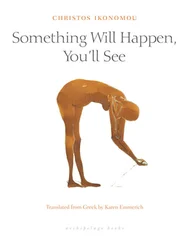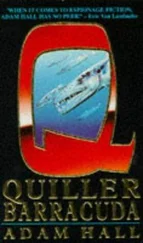Dan was in town, being buffeted by an uncompromising Antarctic wind racing up his sleeves, lashing at his neck and cheeks. He escaped by ducking into an arcade off Bourke Street. He was hunting for a birthday present for Omran, his godson, Demet and Margarita’s son. The gust of hot air that flushed through him as he stepped into the narrow mall had, momentarily, the force of a furnace.
Margarita had been offered a scholarship to continue her PhD in a college in southern California.
‘I’m going to be a kept woman,’ Demet had laughed when she’d told Dan about it. ‘I can’t believe my luck.’
But he had heard the hint of guilt underlying her joy and had interrupted her. ‘You deserve it.’
Demet and he would never assume good fortune for themselves. Martin certainly had never understood that, but then neither had Clyde nor Luke. But Demet got it.
‘You deserve it,’ he insisted.
He passed a small shopfront in the overheated mall, its window filled with jewellery and trinkets. Among them he spied a cluster of small brooches, each of them with a face of shiny blue stone marked with the sharp black outline of an eye. He knew it would be perfect, absolutely right for Omran, and a gift that both parents would appreciate. An eye to ward off evil, an eye to give it back .
He bought the present, put on his jacket and prepared himself for the jolt of returning to the freezing air outside.

Darkness had enfolded the city, and he was shaken by a recollection of Glasgow as present and sharp in his mind as the final image retained when awakening from a vivid dream. He had to steady himself against the solid wall of an office tower to reassure himself that he was indeed in Melbourne. And within a beat of his heart, between breaths, the memory of the other city had gone and the ground beneath him was once again firm. He knew where he was. He walked to the end of the street, heading towards the underground station at Melbourne Central, but as he did so, he was thinking about Clyde. It had been a long time since they had been in touch; he would send an email tomorrow, just a short note. It was through Clyde’s city that he could bring forth memories of his former lover, as if the map of the city was a mirror that reflected the man. Clyde and his city belonged to one another, it was impossible to think of one without the other.
He decided against going underground. The wind swirled around him, bringing a chill but it was also bracing, exhilarating. He pushed against it, almost running into it to stop being pushed back by it. It had the power of an ocean current. It howled around him.
Dan stopped. A poster in the window of a travel agency had caught his eye: a double-decker bus, a black cab, London Bridge, Buckingham Palace and the Tube. And at the bottom of it, the five thin intersecting rings of the Olympic Games. That old unsettling spasm, he could sense its echo, but from a distance; all he needed to do was breathe out and it subsided. He would be going there, he’d be a month away, all he’d be thinking and dreaming about would be the Games. He saw his reflection in the glass, his pale face, the thick stubble on his cheeks and chin, the messy hair in need of a cut, and it occurred to him that even if he had been the strongest and the fastest and the best he would not be there, he could not be there, he would already be too old for there .
Dan stepped back from the window with a grin, dug his hands deep into the pockets of his windbreaker and kept walking. At the lights on the corner of Little Collins Street he found himself next to a throng of students, all talking excitedly about the night ahead. They were so young that they could brave even the remorseless wind, the merciless cold. Except for one of the women, who wore a mini-skirt and the flimsiest of tops; she was hugging herself, her teeth chattering, her shoulders trembling. One of the boys grabbed her, nestled her into an embrace, and she gratefully fell into him. The lights flashed green and Dan was carried across the street with them all, the boy and the girl still huddled together. He found himself swept along by two currents, the ferocious dance of the wind and the steady pace of the group of students. He could hear their chatter about drinking and school and this nightclub and that bar, but he let their words fall without collecting them, he did not need them to make sense. The elfin shivering girl reminded him of Katie the first night he’d met her, in the pub. And the sinewy tall boy who was embracing her, protecting her from the bitter night, all finely muscled limbs, he could be Luke. And another of the boys, flaxen-haired, with freckles on the bridge of his nose, he could have been a shaggier version of Martin Taylor, and if the girl next to him had been wearing less make-up, she could be Demet. There was a boy on the edge of their group, who had let his hair grow long; he walked ahead of the others, diffidently but purposefully weaving through the oncoming crowd. Dan was tempted to reach out to him, to touch him lightly on the arm and say, I recognise you, I see myself in you.
On the journey home, Dan sat huddled between a beefy council worker sleeping with his head slumped back and a sharply dressed young man talking loudly into his smartphone. Dan looked out into the darkness, to the reflection of his face in the grimy glass of the train window. He stared so intently at the ghostly spectre of himself against the sea of darkness that everything else dropped away. He was alone in his world. Belonging: that was something he had once had and now it was gone. He turned away, sifting through the patterns of light and colour till they formed shape; he became aware again of the phlegmy snores of the council worker, the inane posturing of the man on the phone. The air in the carriage was fetid and stuffy; he wanted to be back in the sharpness of the cold night. Everywhere he looked, people were playing with their screens. They didn’t seem human.
The faces all locked in concentration on their phones: Dan wondered why it had seemed so unsettling just a moment before. Belonging, he knew now, was the wrong question. The contest between country and nation, the tussle between home and roaming, here and elsewhere, all the relentless claiming and the ever-shifting mapping, none of it could settle the question that had mattered most to him since he’d found himself moored on dry land: was he, Danny Kelly, Psycho Kelly, Danny the Greek, Dino, Dan, Barracuda, was he a good man? He needed to answer that first, and then all would fall into place.
He perceived his shape, his self, emerge from the black of the shadows outside the speeding train.
He belonged to water. And water, he was now convinced, was made of the same substance as the sky. Dan rolled his shoulders; he missed the touch of Clyde’s kisses on his tattoo. In the feel of his lover’s lips on his inked skin, that too approached a sense of belonging. He had trouble recalling the man’s face, but he knew how to revive that memory of touch. And the conviction that Clyde had been a good man.
The train moves forward and he is still, he allows the machine and its engines to carry him. He is listening without hearing, watching the world without seeing it. Dan closes his eyes. He imagines the ceaseless motion carrying him from one end to the other of this enormous island of infinite horizon. He draws the arc of the end of this world in his mind, sees the train hurtling off the tracks, leaping into the sun, diving and plummeting, into the depths of the ocean. But the train has grown wings, its arc is the pearl thread of moonlight banishing its shadows from the night. The train has sprouted wings and it is soaring.
Читать дальше









